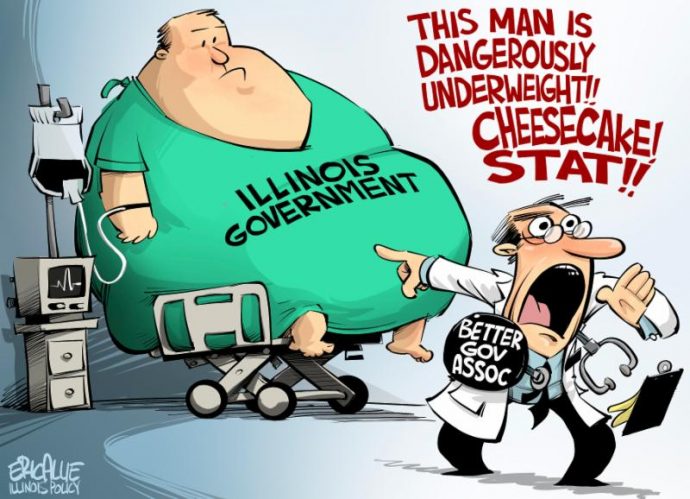Here is Steven Malanga writing at City Journal:
Why public servants live better than the public.
For 50 years, public unions, health-care lobbyists, and social-services advocacy groups have doggedly been amassing power in state capitols and city halls, using their influence to inflate pay and benefits for their workers and to boost government spending. The bill for that influence is now coming due, and it is overwhelming state and local budgets. For instance:
In New Jersey, legislators wooing union votes in 2001 voted a 9 percent hike in already rich pensions for the state’s 500,000 public workers, even though a falling stock market was shrinking pension-fund assets. Today, those new perks have added $1 billion to Jersey’s deficit-riddled budget and will add another $4.2 billion over the next five years.
In Washington State, the powerful teachers’ union led a successful 2000 effort to win legislation mandating smaller class sizes, promising that it would cost taxpayers nothing, because surplus revenues could cover the program. This year, the cash-strapped state passed $500 million in new taxes to finance the mandate.
In California, then-governor Gray Davis and a union-friendly state legislature passed a series of bills that swelled the number of state employees who could claim disability retirement benefits and also expanded the number of ailments automatically classed as job-related to include HIV, tuberculosis, and lower-back pain. The flood of new disability claims will cost the state’s retirement system some $465 million over five years, much of which will come out of taxpayers’ pockets.
Such extravagances help explain why state and local government spending reached an all-time high relative to the national GDP during the 2002 recession, producing a fiscal hangover that continues today. Even in an expanding national economy, with tax revenues surging once more, state and local budgets teeter in precarious balance, long-term deficits pile up, and politicians hike taxes to close spending gaps. The budgetary excess has prompted the stirrings of America’s newest tax revolt, as overburdened taxpayers grope for ways to curb the often automatic expansion of state and local government and to reduce the power of public unions.
Read more: City Journal
Image credit: www.illinoispolicy.org.

